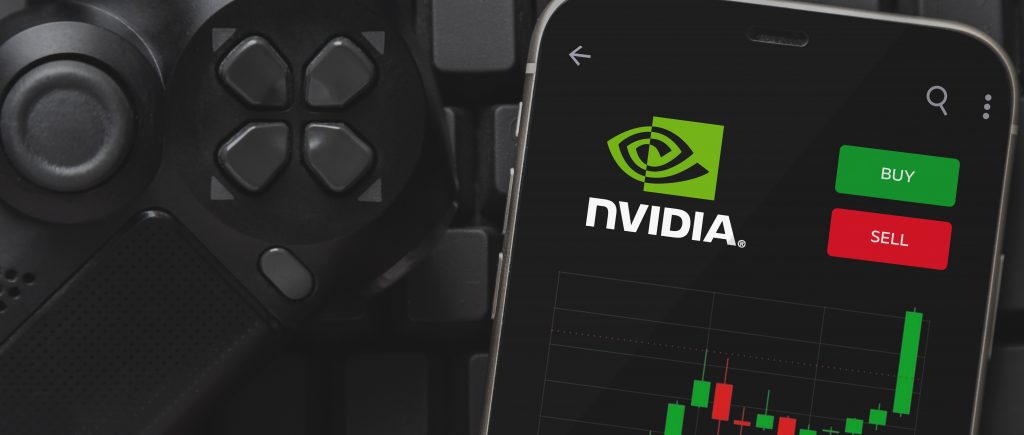The artificial intelligence (AI) chip market, long dominated by Nvidia, is witnessing a seismic shift as competitors and geopolitical pressures reshape the landscape. Nvidia’s stock, a darling of investors due to its pivotal role in powering AI data centers, has faced turbulence following reports of Amazon’s strategic pivot toward custom silicon. Meanwhile, developments in China and missteps by rivals like Intel highlight the intensifying race to dethrone Nvidia’s near-monopoly in AI hardware. This article explores the forces challenging Nvidia’s dominance and what they mean for the future of the AI chip industry.
Amazon’s decision to scale back its reliance on Nvidia’s GPUs in favor of its proprietary chips has sent ripples through the market. The tech giant, a major player in cloud computing, has invested heavily in developing its own silicon to power AI workloads in its data centers. This move is driven by cost efficiency and performance optimization, as custom chips can be tailored to specific tasks, reducing dependency on Nvidia’s expensive hardware. While Amazon’s shift doesn’t eliminate Nvidia entirely from its ecosystem, it signals a broader trend among hyperscalers—large cloud providers like Google and Microsoft—who are also exploring in-house chip designs. For Nvidia, losing ground in these massive data centers could dent its growth trajectory, as cloud computing represents a significant chunk of its revenue.
Across the Pacific, China’s push for AI self-sufficiency is adding another layer of complexity. A leading Chinese tech firm is preparing to mass-produce a new AI chip designed to rival Nvidia’s offerings, fueled by Beijing’s ambition to reduce reliance on U.S. technology amid ongoing trade restrictions. These restrictions have already crimped Nvidia’s ability to sell its most advanced chips in China, a market that once accounted for a substantial portion of its sales. While Nvidia has introduced modified chips to comply with U.S. export controls, Chinese firms are capitalizing on the gap, accelerating domestic innovation. This development not only threatens Nvidia’s market share in China but also underscores the geopolitical risks that could cap its global expansion.
Intel’s recent struggles further illuminate the high stakes of the AI chip race. The company’s former CEO acknowledged that Nvidia’s early bet on AI-specific hardware and its robust software ecosystem gave it a decisive edge. Intel, despite its manufacturing prowess, failed to anticipate the explosive demand for AI accelerators, focusing instead on general-purpose chips. This miscalculation has left Intel scrambling to catch up, with its stock lagging and its AI ambitions still in their infancy. Nvidia’s software advantage, particularly its CUDA platform, remains a formidable barrier for competitors, as it locks developers into its ecosystem. However, Intel’s pivot toward AI and its partnerships with foundries signal a long-term challenge to Nvidia’s dominance.
For investors, Nvidia’s challenges present a mixed picture. On one hand, the company’s leadership in AI hardware and its entrenched software ecosystem ensure it remains a powerhouse. On the other, the rise of custom silicon, China’s domestic push, and competitors’ renewed focus on AI chips raise questions about Nvidia’s long-term growth. The stock’s recent volatility reflects these uncertainties, with some arguing it’s overvalued given the emerging risks. Yet, Nvidia’s ability to innovate and adapt—evidenced by its rapid development of new chip architectures—suggests it won’t cede its throne easily. The AI chip market is entering a new phase, where diversification and resilience will determine the winners.
As the AI revolution accelerates, the battle for chip supremacy is becoming more fragmented and fierce. Nvidia’s early lead gave it a head start, but the finish line is far from sight. Amazon’s custom chips, China’s homegrown solutions, and Intel’s recalibration are just the beginning. For companies and investors alike, the stakes are enormous, as the chips powering AI will shape the future of technology. Whether Nvidia can maintain its grip or new players will redefine the market remains an open question, but one thing is clear: the AI chip race is heating up, and no one is standing still.

 Noor Trends News, Technical Analysis, Educational Tools and Recommendations
Noor Trends News, Technical Analysis, Educational Tools and Recommendations




